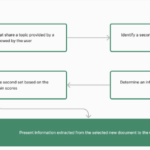In today’s digital age, search engine optimization (SEO) is a term that has become synonymous with online success. But what exactly does it mean, and why should small business owners, marketing professionals, and content creators pay attention to it? Simply put, SEO is crucial for boosting the visibility of your website on search engines like Google, ultimately driving more traffic and potential customers your way.
This blog post will serve as an essential guide for small businesses and marketing enthusiasts eager to enhance their SEO skills. We’ll dig into strategies, tips, and best practices to help you achieve higher search engine rankings and outshine your competition. From understanding the basics to advanced tactics, we’ll cover everything you need to know to make SEO work for you.
What is SEO and Why Does it Matter?
SEO, or search engine optimization, is the process of enhancing your website’s visibility to attract more organic traffic. It involves optimizing various elements of your website—such as content, keywords, and images—to ensure it ranks higher on search engine results pages (SERPs). For small business owners and marketing professionals, mastering SEO means more than just staying competitive; it’s about thriving in a crowded marketplace.
For small businesses, SEO offers a cost-effective way to increase brand recognition. Unlike traditional advertising, which can be expensive, SEO allows you to reach your target audience without breaking the bank. Additionally, marketing professionals and content creators can utilize SEO strategies to amplify their reach, ensuring that their content is seen by more people who are interested in their offerings.
Understanding how search engines work is fundamental to implementing effective SEO strategies. Search engines use complex algorithms to rank websites based on relevance and authority. Therefore, by tailoring your website to align with these factors, you can improve your chances of appearing at the top of search results, driving more traffic and potential customers your way.
The Importance of Keyword Research
At the heart of every successful SEO strategy lies effective keyword research. Keywords are the words and phrases that people enter into search engines when looking for information or products. For small business owners, identifying the right keywords means understanding what your potential customers are searching for, allowing you to tailor your content accordingly.
To start your keyword research, consider using tools like Google Keyword Planner or SEMrush. These platforms provide valuable insights into search volume and competition levels for different keywords. By selecting the right mix of high-volume and long-tail keywords, you can create content that resonates with your audience while also improving your search engine rankings.
One of the key aspects of keyword research is finding a balance between popular and niche terms. While high-volume keywords can be highly competitive, long-tail keywords often have less competition and can attract more targeted traffic. By incorporating both types of keywords into your content, you can maximize your chances of reaching a broader audience.
Crafting Engaging Content
Creating high-quality, engaging content is a vital component of any successful SEO strategy. For small business owners and content creators, this means producing content that provides value to your audience while also incorporating relevant keywords. Whether it’s blog posts, articles, or videos, your content should be informative, entertaining, and easy to read.
When crafting content, it’s important to keep your target audience in mind. Consider their needs, interests, and pain points, and use this information to tailor your content accordingly. By addressing the specific challenges your audience faces, you can build credibility and trust, making them more likely to engage with your brand.
While keywords play a significant role in SEO, it’s essential not to overdo it. Keyword stuffing—cramming your content with too many keywords—can hurt your rankings and make your content difficult to read. Instead, focus on creating naturally flowing content that seamlessly incorporates keywords, ensuring a positive user experience.
The Power of On-Page SEO
On-page SEO refers to the optimization of individual pages on your website to improve their search engine rankings. This includes elements like meta tags, headings, and images. For small business owners and marketing professionals, mastering on-page SEO can have a significant impact on your website’s visibility and search performance.
One of the first steps in on-page SEO is optimizing your meta tags, including title tags and meta descriptions. These elements provide search engines with important information about your page, helping them determine its relevance to users’ search queries. By crafting compelling and informative meta tags, you can increase your chances of attracting click-through traffic from search results.
Headings and subheadings are another critical aspect of on-page SEO. These elements not only help organize your content but also provide search engines with additional context about your page. By using clear and descriptive headings, you can improve the readability of your content while also boosting your search engine rankings.
Building Quality Backlinks
Backlinks—links from other websites to your own—are a crucial factor in determining your website’s authority and credibility. For small business owners, acquiring quality backlinks can significantly improve your search engine rankings and drive referral traffic to your site.
To build quality backlinks, focus on creating valuable and shareable content. When your content provides real value, other websites and bloggers are more likely to link to it, increasing your site’s authority. Additionally, consider reaching out to industry influencers and publications to share your content and gain valuable backlinks.
It’s important to note that not all backlinks are created equal. Search engines place more value on backlinks from reputable and relevant websites. Avoid low-quality or spammy links, as they can negatively impact your SEO efforts. Instead, focus on building natural and genuine backlinks that enhance your website’s credibility.
Enhancing User Experience
User experience (UX) plays a critical role in SEO success. Search engines prioritize websites that provide a positive and seamless experience for users. For small business owners and marketing professionals, this means ensuring your website is easy to navigate, fast-loading, and mobile-friendly.
One of the key aspects of enhancing UX is optimizing your website’s loading speed. Slow-loading pages can lead to high bounce rates and negatively impact your search engine rankings. To improve loading speed, consider compressing images, minimizing server requests, and leveraging browser caching.
Mobile optimization is another essential factor in providing a positive user experience. With more people accessing websites from their mobile devices, it’s crucial to ensure your site is responsive and mobile-friendly. By optimizing for mobile, you can reach a larger audience and improve your search engine rankings.
Leveraging Social Media for SEO
Social media and SEO are two powerful tools that can work together to boost your online presence. For small business owners and content creators, leveraging social media can drive traffic to your website, increase brand awareness, and improve your search engine rankings.
One of the ways social media can enhance your SEO efforts is by increasing the visibility of your content. When your content is shared and engaged with on social media, it can attract more visitors to your site, improving your search engine rankings. Additionally, social media platforms can act as valuable channels for acquiring backlinks, further boosting your site’s authority.
To effectively leverage social media for SEO, focus on creating shareable and engaging content. Encourage your audience to share your content by incorporating visually appealing images, videos, and infographics. By actively engaging with your audience on social media, you can build a loyal community that supports your brand and enhances your SEO efforts.
Monitoring and Measuring SEO Success
Tracking and measuring the success of your SEO efforts is essential for ongoing improvement. For small business owners and marketing professionals, utilizing analytics tools like Google Analytics can provide valuable insights into your website’s performance and help identify areas for optimization.
When monitoring your SEO success, pay attention to key metrics like organic traffic, bounce rates, and conversion rates. These metrics can provide valuable insights into how well your SEO strategies are working and where improvements may be needed. By continuously analyzing your data, you can make informed decisions and refine your SEO efforts for maximum impact.
In addition to analytics tools, consider conducting regular SEO audits to identify any technical issues or areas for improvement. An SEO audit can help you uncover potential roadblocks that may be affecting your search engine rankings and provide actionable recommendations for optimization.
Staying Up-to-Date with SEO Trends
The world of SEO is constantly evolving, with new trends and algorithms emerging regularly. For small business owners and marketing professionals, staying informed about the latest SEO trends is crucial to maintaining a competitive edge and achieving long-term success.
One of the ways to stay up-to-date with SEO trends is by following industry blogs, forums, and podcasts. These resources provide valuable insights and updates on the latest developments in the world of SEO. By staying informed, you can adapt your strategies and ensure your website remains optimized for search engines.
Additionally, consider attending SEO conferences and workshops to learn from industry experts and network with other professionals. These events offer valuable opportunities to gain hands-on experience and stay ahead of the curve in the ever-changing world of SEO.
The Role of AI in SEO
Artificial intelligence (AI) is transforming the way businesses approach SEO. For small business owners and marketing professionals, leveraging AI-powered tools can streamline SEO tasks, enhance keyword research, and improve content optimization.
AI tools like natural language processing (NLP) and machine learning algorithms can analyze vast amounts of data to identify patterns and trends. By utilizing these tools, you can gain valuable insights into user behavior, search intent, and emerging keywords, enabling you to optimize your content for better search engine rankings.
Additionally, AI-powered chatbots and virtual assistants can enhance user experience and engagement on your website. By providing real-time support and assistance, these tools can improve customer satisfaction and drive more conversions.
Taking Action with SEO Strategies
Now that you have a comprehensive understanding of SEO and its various components, it’s time to take action. For small business owners, marketing professionals, and content creators, implementing effective SEO strategies can make a significant impact on your online success.
Start by conducting a thorough analysis of your website’s current SEO performance. Identify areas for improvement and prioritize your efforts based on your business goals and target audience. By focusing on the most impactful strategies, you can achieve meaningful results and drive more organic traffic to your site.
Remember that SEO is an ongoing process that requires continuous monitoring, analysis, and refinement. Stay committed to learning and adapting your strategies to stay ahead of the competition and maintain your website’s visibility in search engine results.
Conclusion
SEO is an indispensable tool for small business owners, marketing professionals, and content creators looking to thrive in the digital landscape. By understanding the fundamentals of SEO and implementing effective strategies, you can enhance your website’s visibility, drive more organic traffic, and achieve long-term success.
Whether you’re just starting your SEO journey or looking to refine your existing strategies, the key is to stay informed, adapt to new trends, and continuously optimize your efforts. By doing so, you can unlock the full potential of SEO and propel your business to new heights.
For more information and resources on SEO best practices, consider exploring reputable industry blogs, attending workshops, and engaging with online communities. With the right knowledge and tools, you can master the art of SEO and achieve your business goals.



















